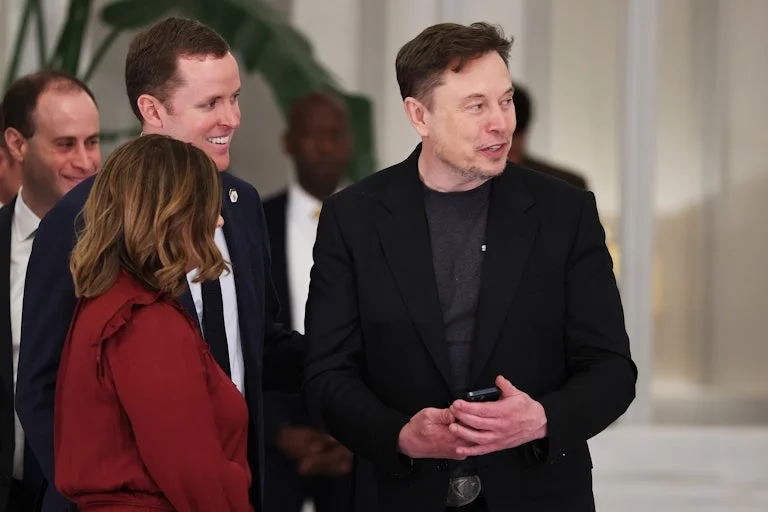
South Africa Adjusts Empowerment Laws for Starlink Amidst Trump Meeting: A Win for Rural Connectivity?
South Africa is considering a significant shift in its Black empowerment laws to pave the way for Elon Musk's Starlink satellite internet service. This move comes amidst pressure from both Musk and former U.S. President Donald Trump, raising questions about the balance between affirmative action and attracting foreign investment.
The proposed legislation aims to address Musk's concerns over existing regulations that require foreign investors in telecoms to sell 30% of their equity to historically disadvantaged groups. Musk, who was born in South Africa, has previously described these rules as "openly racist," arguing that they create an "absurd situation" where he is ineligible for an operating license.
Instead of direct equity sales, the government is suggesting alternative "equity equivalence programmes." These could involve companies investing in local suppliers, creating jobs, or financing small businesses. Communications Minister Solly Malatsi believes this offers "much-needed policy certainty to attract investment." The proposal is currently open for public comment.
This move follows a recent meeting between South African President Cyril Ramaphosa and Trump, where the latter reportedly criticized South Africa's "race-based laws." Musk, a close advisor to Trump, later attended a working lunch with both presidents. This timing has led to speculation that the legislative shift is intended to appease both Musk and the U.S. government, although the South African government maintains it's about expanding broadband access.
Starlink has already proven popular in other African nations with limited broadband infrastructure. Advocates argue that it could significantly benefit rural communities in South Africa, improving access to education, health services, and other crucial resources. Government data indicates that in 2023, only 1.7% of the rural population had internet access at home.
However, the proposal faces strong opposition. Critics argue that South Africa is compromising its affirmative action policies solely to accommodate Musk. Julius Malema, leader of the Economic Freedom Fighters party, has vowed to "oppose Starlink in parliament," citing Musk's controversial views on race relations in South Africa.
Despite the controversy, analysts generally view the equity equivalence proposal favorably for the telecoms sector, drawing parallels to existing policies in industries like the automotive sector. Political analyst Ralph Mathekga argues that demanding strict compliance with Black empowerment rules would "harm the rest of the country," particularly in rural areas where Starlink could make a significant difference. Vodacom, a local unit of Vodafone, operates under existing rules after having sold shares to Black investors.
The new law is being crafted so that the selected companies will still be encouraged to “contribute meaningfully to equity, skills development and economic inclusion,” according to the government.
The core question remains: Can South Africa strike a balance between promoting equitable economic participation and attracting the foreign investment needed to improve connectivity and drive economic growth? The future of Starlink in South Africa, and the broader implications for the country's empowerment policies, are now under intense scrutiny. What are your thoughts on this proposed change?
Share your opinions in the comments below!